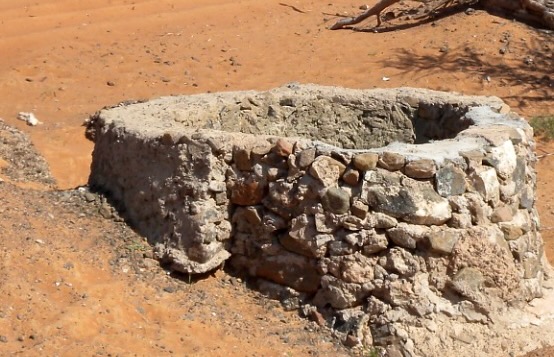
The woman said to him [Jesus], “Sir, give me this water, so that I will not be thirsty or have to come here to draw water.” John 4:15 (ESV) Sometimes our petitions ask for more than we may realize. This is especially true of the Lord’s Prayer. Today at International Lutheran Church, we continue our study of Luther’s Small Catechism and take up the Lord’s Prayer. At the same time, we reflect on the conversation in John’s gospel between Jesus and the woman at Jacob’s well. We may be surprised at how this dialog can unpack the importance of prayer.
Lent is a special season of prayer. For centuries Christians have used these forty days as a time of spiritual discipline. It has often been used as a special time for preparation for baptism. Whether we have taken up reading the Lenten devotions as a family or just trying to spend more dedicated time in prayer, all of this can aid us as we contemplate our Savior’s passion. Today we want to take up the Lord’s Prayer and Luther’s explanations to the petitions as part of our spiritual discipline of prayer even as we listen to Jesus’ words to the woman at Jacob’s well in John 4. Luther begins: Our Father who art in heaven. What does this mean? With these words God tenderly invites us to believe that He is our true Father and that we are His true children, so that with all boldness and confidence we may ask Him as dear children ask their dear father.
What may not be obvious to most is that the Lord’s Prayer is first and foremost an invitation into an intimate relationship with God. Even as the Ten Commandments teach us to fear, love and trust in Him above all things, and the Apostles’ Creed teaches us to “believe” that God the Father, Son and Holy Spirit has made me, redeemed me and sanctified me, here the Lord’s Prayer now invites us to see Him as our true Father, and ourselves as His true children.
Just as Jesus invites the woman who has come to Jacob’s well in the heat of the day to ask Him for a drink, so God invites us to believe that He is our dear Father who desires for us life, not death. “If you knew, … you would have asked Him.” (v.10) Prayer is an invitation to see God as the One who provides. But what are we to ask for? As we begin the Lord’s Prayer, we may be surprised that we ask for things like God’s name to be made holy, His Kingdom to come and His will to be done. Even Luther mused with a repeated phrase in his explanation stating, “God’s name is certainly holy in itself, but we pray in this petition that it may be kept holy among us also.” “The kingdom of God certainly comes by itself without our prayer, but we pray in this petition that it may come to us also.” The good and gracious will of God is done even without our prayer, but we pray in this petition that it may be done among us also.”
Yes, the three petitions are part of the invitation to take personally the nature of God’s Name, His Kingdom and His Will. Our prayer is that each of these would be and come “among us also!” This is His way of helping us to know who it is that we are speaking to. Like the woman at the well, we may not always be aware of who we are talking to and that His goal is to attach His Name to us, bring us into His Kingdom and make His Will our one desire. “Sir, give me this water!” (v.15) That is our prayer!
But isn’t prayer about asking God for things? Yes, and God does give us all good things: “our daily bread, food, clothing, house, home, good government, devout friends,” etc., even without our prayer so that we would thank and praise Him. Yet there is still so much more! Not only does He graciously give us everything we need for this body and life, but He pours into us His own Holy Spirit that becomes in us a well to eternal life. “The water that I will give him will become in him a spring of water welling up to eternal life.” (v.14b) You see, like the woman at the well, we also live dusty lives caught in sin and shame.
Now maybe we don’t think our sins are so bad as the next person, but we are likely to want to change the topic whenever they are shown to us! “Sir, I perceive that you are a prophet.” (v.19) We don’t like to be shown our sin since we can’t do anything about it except confess that it is ours. But this is exactly what the Lord’s Prayer helps us to do - confess our sins as we see our need for the forgiveness of sins, to be lead away from temptation and deliverance from evil.
This is the reason Jesus sits by Jacob’s well; this is why He hung on the cross. “I who speak to you am He.” (v.26) Just as the woman at Jacob’s well that day was freed from her past, we, too, are able to say the “Amen” in faith believing that God does provide. In Jesus, we see behind our daily needs how our gracious Father has even given us His dear Son as the answer to all our prayers!
Pastor Carl
